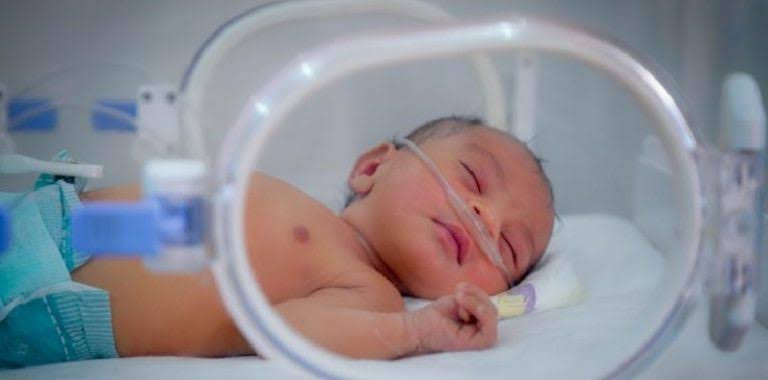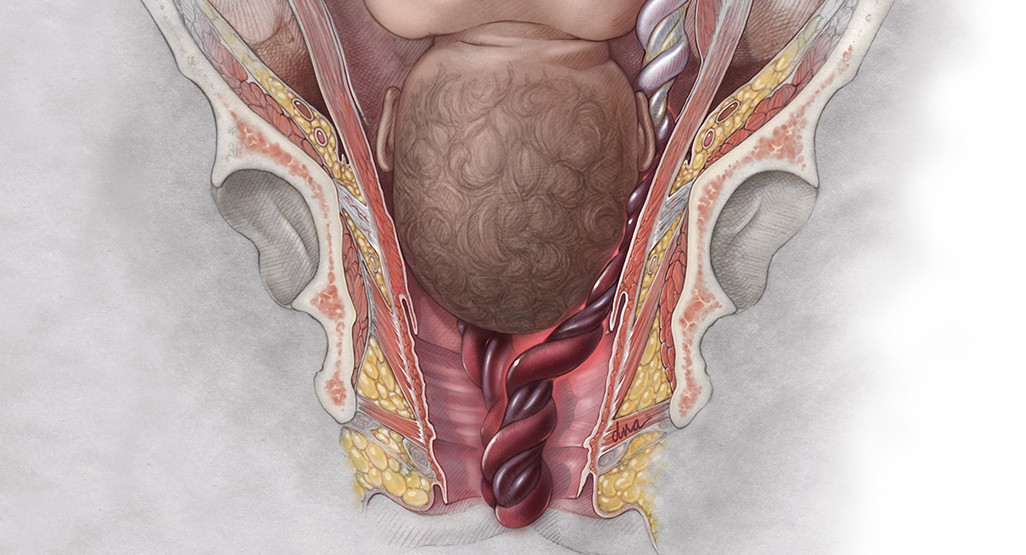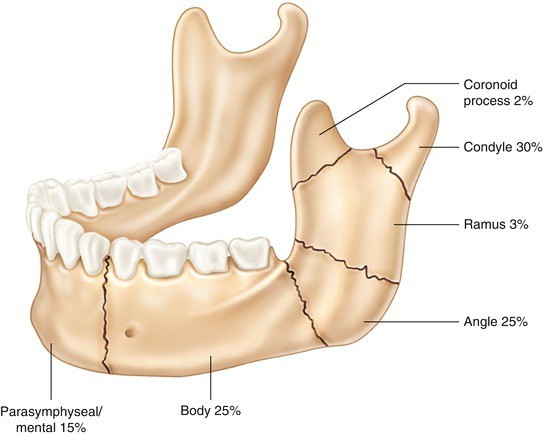Definisi
Sepsis neonatorum adalah kondisi medis serius yang terjadi ketika bayi baru lahir (berusia kurang dari 28 hari) mengalami infeksi serius. Sepsis terjadi ketika tubuh memberikan respon yang ekstrem terhadap suatu infeksi. Pada bayi baru lahir yang mengalami infeksi dan sepsis dapat mengalami peradangan di seluruh bagian tubuh. Peradangan dan pembekuan darah menyebabkan penurunan aliran darah ke anggota gerak dan organ penting bayi. Hal ini dapat menyebabkan kegagalam organ dan bahkan kematian.
Dokter mengklasifikasikan sepsis neonatorum dalam 2 kategori berdasarkan usia terjadinya:
- Sepsis neonatorum onset dini: sepsis yang terjadi dalam 72 jam pertama kehidupan
- Sepsis neonatorum onset lambat: sepsis yang terjadi setelah 3 hari kehidupan
Sepsis pada bayi baru lahir dapat disembuhkan. Banyak bayi baru lahir yang mengalami sepsis sembuh sempurna dan tidak mengalami masalah lainnya. Namun, kondisi ini merupakan salah satu penyebab utama kematian bayi. Lebih cepat bayi Anda mendapatkan penanganan, lebih baik hasilnya. Risiko kematian akibat sepsis meningkat sekitar 7.6% pada setiap jam yang terlewat tanpa terapi.
Penyebab
Infeksi bakteri adalah penyebab sepsis neonatorum yang paling banyak. Bakteri seperti E. coli, Listeria, dan Streptococcus Grup B (GBS) adalah bakteria yang sering menyebabkan infeksi yang dapat berujung pada sepsis.
Virus, jamur, dan parasit juga dapat menyebabkan sepsis. Sebagai contoh, virus herpes simpleks (HSV) dapat menyebabkan infeksi serius pada bayi baru lahir.
Bayi baru lahir mengalami sepsis dengan cara yang berbeda berdasarkan usia saat terjadi sepsis:
- Sepsis neonatorum onset dini. Bayi baru lahir dengan sepsis neonatorum onset dini mendapatkan infeksi dari ibunya sebelum atau saat persalinan. Infeksi ini terjadi ketika bayi terpapar jenis bakteri tertentu. Infeksi ini lebih sering terjadi ketika:
- Bakteria seperti GBS telah mengkolonisasi vagina ibu saat kehamilan
- Bayi lahir prematur
- Selaput ketuban Anda pecah dini (lebih dari 18 jam sebelum bayi lahir)
- Terdapat infeksi pada plasenta dan cairan amnion (suatu kondisi yang disebut dengan korioamnionitis)
- Sepsis neonatorum onset lambat. Bayi baru lahir dengan sepsis neonatorum onset lambat terkena infeksi setelah persalinan. Bayi biasanya terkena infeksi dari bakteri di lingkungannya. Bakteri dapat menyebar ke bayi Anda melalui peralatan medis seperti kateter, infus dan selang. Infeksi ini lebih sering terjadi ketika bayi Anda:
- Memiliki berat badan lahir rendah
- Membutuhkan selang pernapasan
- Membutuhkan antibiotik
- Memiliki kateter yang terpasang pada pembuluh darah atau kandung kemih dalam jangka waktu yang lama
- Membutuhkan terapi untuk kondisi lainnya yang menambah waktu tinggal di rumah sakit
Faktor Risiko
Sepsis neonatorum dapat terjadi pada semua bayi. Namun, bayi prematur lebih sering mengalami sepsis dibandingkan dengan bayi cukup bulan karena sistem imunnya belum cukup matang. Bayi yang lahir prematur tidak memiliki antibodi untuk melindungi mereka dari bakteri tertentu. Hal ini karena mereka lahir sebelum mereka dapat menerima antibod dari ibu.
Sepsis neonatorum juga lebih sering terjadi pada bayi yang:
- Memiliki berat badan lahir rendah
- Memiliki skor Apgar rendah saat lahir
- Memiliki ibu dengan faktor risiko tertentu, seperti infeksi saat kehamilan
Gejala
Banyak gejala sepsis neonatorum sama dengan gejala yang akan Anda lihat ketika bayi Anda mengalami penyakit lainnya. Jika bayi Anda mengalami gejala tersebut, seringkali hal ini bukan merupakan sepsis. Namun, jika bayi baru lahir Anda memiliki lebih dari satu gejala dibawah ini atau mereka terlihat lebih sakit daripada normalnya, Anda harus mencari pertolongan medis segera.
Gejala sepsis neonatorum meliputi:
- Demam atau suhu tubuh rendah
- Detak jantung cepat atau lambat
- Napas cepat atau sesak napas
- Muntah
- Diare
- Penurunan atau kesulitan makan
- Perut bengkak
- Tangan dan kaki dingin
- Kulit lembap dan pucat
- Kulit dan bagian putih mata menjadi kuning (ikterus)
- Penurunan aktivitas
- Kejang
Diagnosis
Dokter akan mengevaluasi gejala bayi Anda dan menanyakan mengenai riwayat kesehatan Anda.
Dokter akan merekomendasikan pemeriksaan yang digunakan untuk mendiagnosis penyebab infeksi bayi Anda. Pemeriksaan tersebut dapat meliputi:
- Pemeriksaan darah: hitung darah lengkap, kultur darah, dan protein C reaktif
- Pemeriksaan urine: urinalisis dan kultur urin
- Pungsi lumbal: dokter memasukan jarum yang sangat kecil ke dalam rongga diantara tulang belakang bayi untuk mengambil cairan tulang belakang untuk memeriksa adanya infeksi
- Pemeriksaan radiologi: X-ray dada atau USG
Tata Laksana
Tata laksana sepsis neonatorum harus dimulai segera. Dokter dapat memasukan bayi Anda ke unit perawatan intensif (ICU). Terapi untuk sepsis neonatorum dapat meliputi:
- Infus cairan
- Infus antibiotik untuk memerangi infeksi bakteri
- Obat antivirus untuk memerangi infeksi virus
- Obat untuk jantung dan/atau tekanan darah
- Pemberian bantuan oksigen atau alat bantu nafas lainnya, jika diperlukan
Komplikasi
Kebanyakan bayi baru lahir yang sembuh dari sepsis tidak mengalami komplikasi apapaun. Namun, banyak bayi yang bertahan mengalami masalah kesehatan jangka panjang. Lebih dari sepertiga bayi yang bertahan dari sepsis akan mengalami keterlambatan pada kemampuan kognitif.
Beberapa bayi mengalami infeksi pada membran selaput otak yang disebut dengan meningitis. Bayi baru lahir yang mengalami kondisi ini dapat mengalami gejala dan efek samping yang serius, seperti:
- Kelesuan yang ekstrem
- Penonjolan ubun-ubun
- Gangguan pendengaran
- Keterlambatan perkembangan
- Cerebral palsy
- Kejang
- Koma
Baca Juga: Cerebral Palsy - Definisi, Penyebab, Gejala, dan Pengobatannya
Pencegahan
Untuk mencegah menularkan infeksi ke bayi Anda, dokter kandungan dapat merekomendasikan Anda untuk mengkonsumsi antibiotik preventif. Dokter akan memberi Anda infus antibiotik selama beberapa jam sebelum persalinan jika:
- Anda mengalami infeksi seperti korioamnionitis
- Anda mengalami kolonisasi strep grup B pada vagina
- Anda pernah melahirkan bayi dengan sepsis
Selain itu, terdapat beberapa langkah yang dapat Anda lakukan untuk mencegah sepsis, seperti:
- Mempraktikan kebersihan yang baik
- Memeriksakan diri ke dokter dengan rutin
- Mendapatkan vaksin yang direkomendasikan
- Mengenali tanda sepsis
- Mencari pertolongan medis segera jika Anda mencurigai diri Anda atau bayi Anda mengalami sepsis
Baca Juga: Korioamnionitis - Definisi, Penyebab, Gejala, dan Pengobatannya
Kapan Harus ke Dokter?
Jika Anda sudah berada di rumah dan bayi baru lahir Anda mengalami gejala sepsis dibawah ini, segera hubungi nomor emergensi atau pergi ke IGD terdekat. Anda juga dapat memantau gejala berikut:
- Bayi Anda lebih rewel atau mengantuk daripada biasanya
- Kulit bayi Anda dingin, pucat, atau berubah warna
- Bayi Anda tidak buang air kecil selama lebih dari 12 jam
- Bayi Anda tidak merespon atau mengalami kesulitan bernafas
Mau tahu informasi seputar penyakit lainnya? Cek di sini, ya!
- dr. Monica Salim
Sepsis in newborns (neonatal sepsis): Symptoms, causes & treatment (2023) Cleveland Clinic. Available at: https://my.clevelandclinic.org/health/diseases/15371-sepsis-in-newborns (Accessed: March 10, 2023).
Default - Stanford Medicine Children's health (no date) Stanford Medicine Children's Health - Lucile Packard Children's Hospital Stanford. Available at: https://www.stanfordchildrens.org/en/topic/default?id=sepsis-90-P02410 (Accessed: March 10, 2023).
Tesini, B.L. (2022) Sepsis in newborns - children's health issues, MSD Manual Consumer Version. MSD Manuals. Available at: https://www.msdmanuals.com/home/children-s-health-issues/infections-in-newborns/sepsis-in-newborns (Accessed: March 10, 2023).











